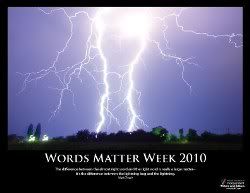The Thoroughness Challenge is a post consisting of paragraphs that contain spelling and/or grammatical errors. The paragraphs with the errors corrected and highlighted in red can be found at the end of the post.
Note: The purpose of the Challenge is thoroughness. You're only looking for errors in spelling and/or grammar. Names and places will NOT be misspelled, nor will there by any changes to punctuation or sentence structure.
Your Challenge paragraphs today look at the origin of the term, Ides of March, and contain 11 errors. Good Luck!
The term ides originally referred to the day of the full moon. The Romans considered this an auspiscious day in their calender. The word ides comes from Latin, meaning "half division" (of a month). The Ides of March (Latin: Idus Martias) was a festive day dedicated to the god Mars and a military parade was usually held. In modern times, the term Ides of March is best known as the date that Julius Caesar was assasinated in 44 B.C.E.
The soothsayer's warning to Julius Caesar, "Beware the Ides of March," has forever imbude that date with a sense of forboding. But in Roman times the expression "Ides of March" did not necessarily evoke a dark mood—it was simply the standard way of saying "March 15." Surely such a fancyful expression must signify something more than merely another day of the year? Not so. Even in Shakespeare's time, sixteen centuries later, audiances attending his play Julius Caesar wouldn't have blinked twice upon hearing the date called the Ides.
So, the Ides of March is just one of a dozen Ides that occur every month of the year. Kalends, the word from which calender is derived, is another exotic-sounding term with a mundain meaning. Kalendrium means account book in Latin: Kalend, the first of the month, was in Roman times as it is now, the date on witch bills are do.

Now, let's see how thorough you are!
The term ides originally referred to the day of the full moon. The Romans considered this an auspicious day in their calendar. The word ides comes from Latin, meaning "half division" (of a month). The Ides of March (Latin: Idus Martias) was a festive day dedicated to the god Mars and a military parade was usually held. In modern times, the term Ides of March is best known as the date that Julius Caesar was assassinated in 44 B.C.E.
The soothsayer's warning to Julius Caesar, "Beware the Ides of March," has forever imbued that date with a sense of foreboding. But in Roman times the expression "Ides of March" did not necessarily evoke a dark mood—it was simply the standard way of saying "March 15." Surely such a fanciful expression must signify something more than merely another day of the year? Not so. Even in Shakespeare's time, sixteen centuries later, audiences attending his play Julius Caesar wouldn't have blinked twice upon hearing the date called the Ides.
So, the Ides of March is just one of a dozen Ides that occur every month of the year. Kalends, the word from which calendar is derived, is another exotic-sounding term with a mundane meaning. Kalendrium means account book in Latin: Kalend, the first of the month, was in Roman times as it is now, the date on which bills are due.

Sources: Wikipedia and infoplease









































































